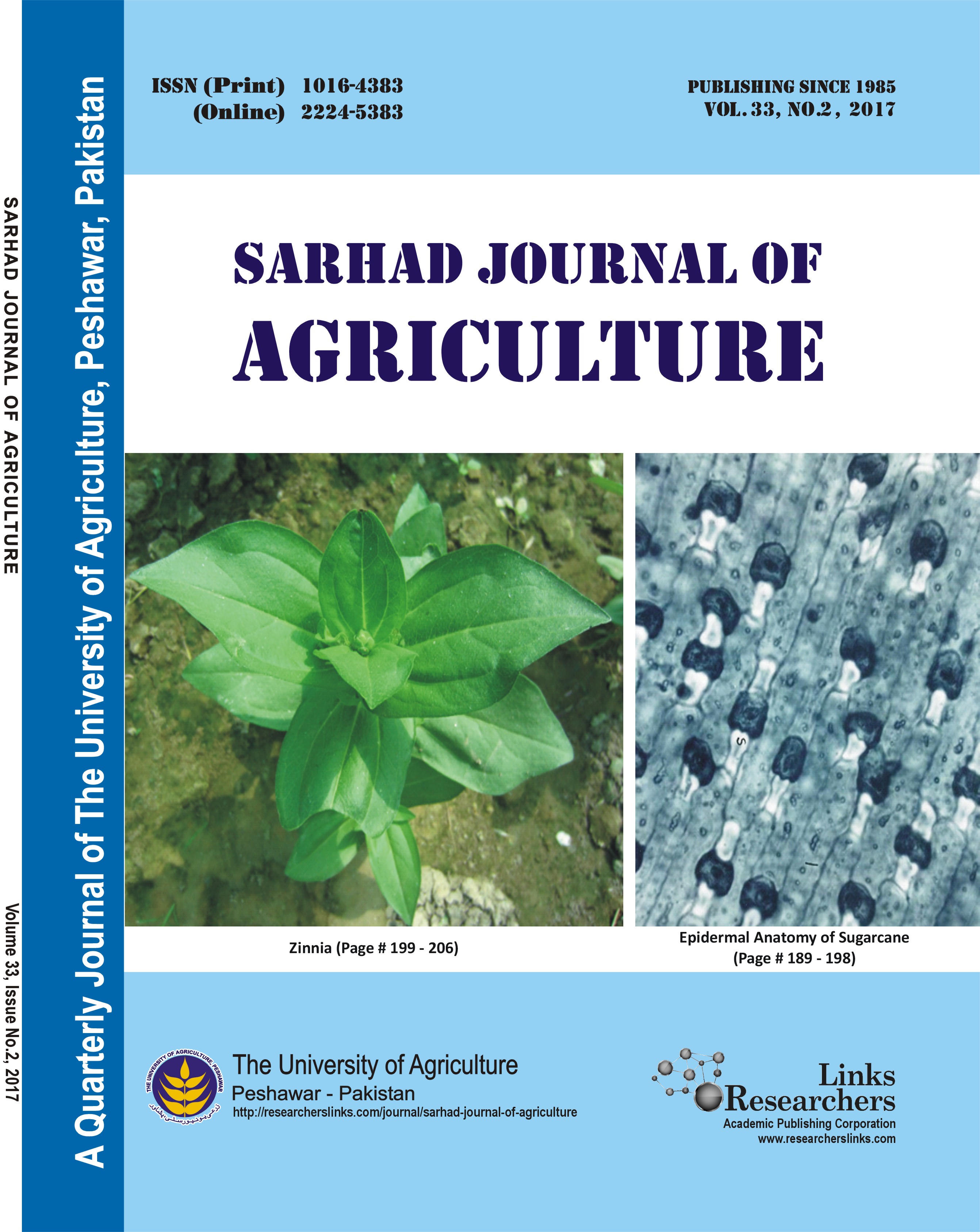Performance and Macroeconomic Determinants of Basmati Rice Exports from Pakistan
Performance and Macroeconomic Determinants of Basmati Rice Exports from Pakistan
Iqbal Javed1, Abdur Rehman2*, Iftikhar Nabi3, Amar Razzaq4, Raheel Saqib5, Allah Bakhsh6, Muhammad Mohibullah7 and Muhammad Luqman8
ABSTRACT
The main aim of this paper is to review and evaluate the performance of Pakistani basmati to international markets and to estimate the impact of different factors on basmati export from Pakistan. For this purpose, panel data of eleven markets are collected from 2003 to 2016. Independent macroeconomics variables used in the study are exchange rate of Pakistan, exchange rates of trading partner, inflation in Pakistan, inflation in trading partner and dummy variables joint border and religion by application of Park’s Feasible Generalized Least Square (FGLS). Result of this study showed that exchange rate of Pakistan has negative and significant effect on basmati export but exchange rate of trading partner has positive and significant effect on basmati export of Pakistan to its trading partner. The inflation in Pakistan has negative and significant effect on basmati exports from Pakistan to its trading partner. If Pakistan wants to improve its export value of basmati rice, there must be an effective strategy to control the inflation in Pakistan or at least need to make policy for minimizing the impact of inflation for the rice producers. If it is very difficult to control the inflation there must be subsidies for rice growers for inputs used in the basmati production. The high rates of inflation in trading partners have positive and significant impact on the demand of Pakistani basmati is an indication for Pakistani exporters to mark extra motivation on those international markets where inflation is comparatively high. Dummy variables for Muslims and joint boarders have positive and significant impact on basmati export flow from Pakistan to its trading partner. The results of dummy variables showed that there must be more emphasis on the neighbor and Muslim countries for improving the export value of Pakistani basmati.
To share on other social networks, click on any share button. What are these?







